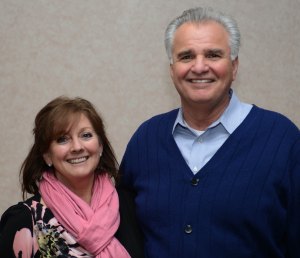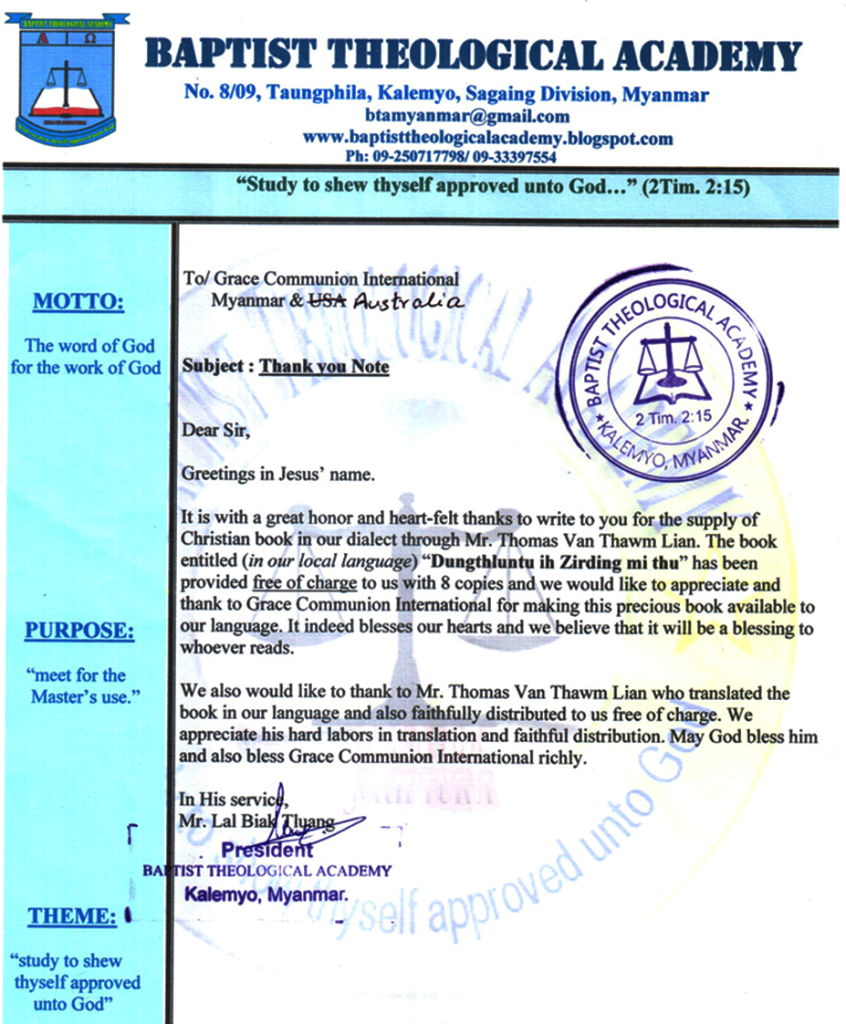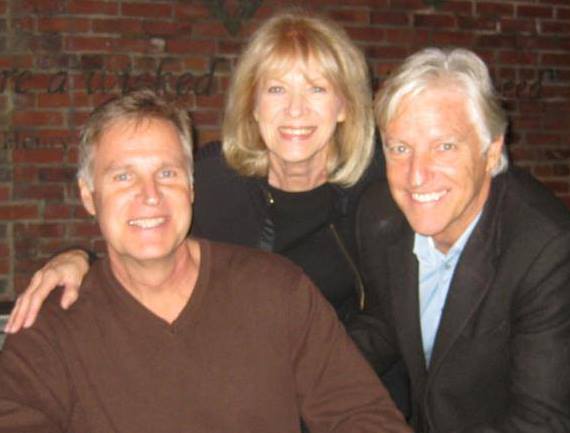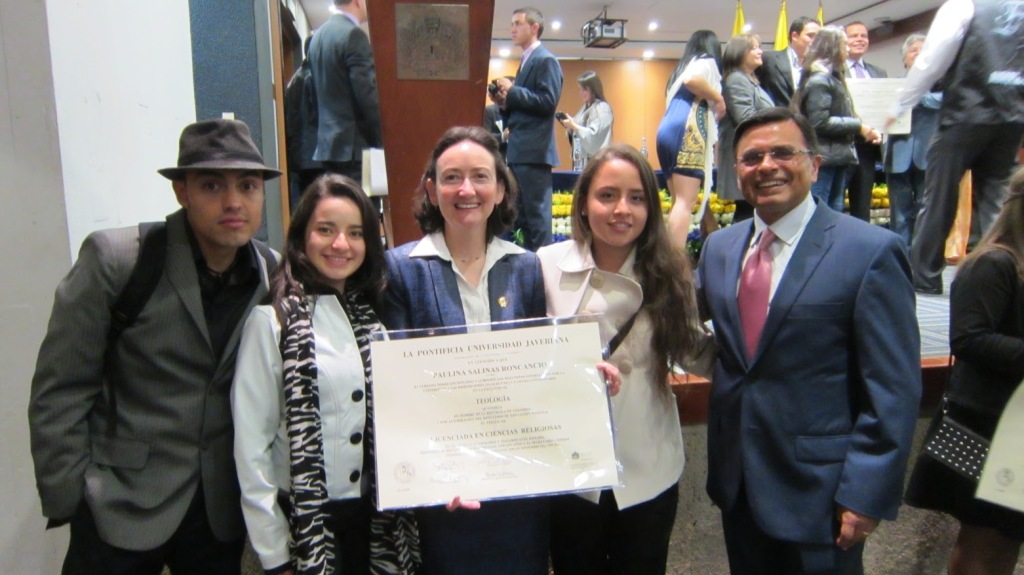Dear Brothers and Sisters in Christ,
 In his first letter to his young protégé Timothy, the apostle Paul shared this profound truth: “There is one God and one mediator between God and mankind, the man Christ Jesus” (1 Timothy 2:5). Though the Christian church is blessed with many inspiring and skillful worship leaders, only Jesus, through the power of the Holy Spirit, leads us into the presence of God. He is our true worship leader.
In his first letter to his young protégé Timothy, the apostle Paul shared this profound truth: “There is one God and one mediator between God and mankind, the man Christ Jesus” (1 Timothy 2:5). Though the Christian church is blessed with many inspiring and skillful worship leaders, only Jesus, through the power of the Holy Spirit, leads us into the presence of God. He is our true worship leader.
Regardless of the particular form or style, behind all true worship is the mediating ministry of our high priest, Jesus Christ. According to the author of Hebrews, Jesus is “a great priest over the house of God” (Hebrews 10:21), “a minister [leitourgos] in the sanctuary and in the true tabernacle, which the Lord pitched, not man (Hebrews 8:2 NASB).
When we hear the word “worship,” we typically think of worship practices like praying, singing and receiving an offering. But worship is much larger than that. Properly defined, worship is a lifestyle that expresses grateful response to God for all he has done for us in Christ. Included is the way we treat others, based on the truth that we have been reconciled to God through Christ (2 Corinthians 5:18).
Paul reminds us that this life of worship is one of self-sacrifice: “I urge you, brothers and sisters, in view of God’s mercy, to offer your bodies as a living sacrifice, holy and pleasing to God—this is your true and proper worship” (Romans 12:1). “Proper worship” translates logikos latreia hymeis, which is translated as “reasonable service” in the NKJV, “spiritual worship” in the NRSV, and “intelligent service” in the YLT. True worship includes all of these.
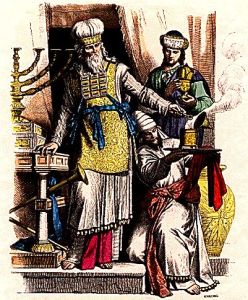
In the Old Testament, Israel’s worship was led by the high priest who served as the representative of all Israel, standing in solidarity with the people. In his full humanity, Jesus stands in solidarity not only with Israel, but with all humanity. And in his full divinity, Jesus reconciles humanity to God. Jesus’ once-for-all, self-offering sacrifice brought complete redemption and forgiveness. In referring to Jesus as the one and only God-man priest “in the order of Melchizedek,” the author of Hebrews was explaining a special aspect of Jesus’ role as our high priest in representing us to the Father and the Father to us. Unlike Melchizedek, however, Jesus’ priesthood is eternal.
The God-man Jesus, who has rightly been referred to as “the perfect fusion of undiminished deity and complete humanity,” is both the recipient and the giver of worship. By always being in communion with the Father in prayer and worship, Jesus modeled for us throughout his earthly ministry what it means to be in relationship with the Father and the Spirit. Whereas Israel’s high priest temporarily carried the names of Israel’s 12 tribes on his breastplate, Jesus, our high priest, forever bears the names of all humans within his own representative humanity. Our Lord affirms this through the prophet Isaiah in declaring that, “I have inscribed you on the palms of my hands” (Isaiah 49:16 NRSV).
As our high priest, Jesus reveals the Father to us. In his high priestly prayer to the Father, he declared, “I made your name known to them, and I will make it known” (John 17:26 NRSV). As the one mediator of a new covenant, Jesus shows God to be a Father who desires his children’s presence (Hebrews 9:15; 12:24). This gives us cause for worship, reminding us that Jesus is both the center and mediator of that worship. In Jesus, humanity meets God in person!
In Worship, Community and the Triune God of Grace, James B. Torrance notes that our worship is Unitarian when it’s about techniques of experiencing God on our own. But our worship is Trinitarian when it’s about Jesus, our elder brother and great high priest who draws us into the eternal communion of love that characterizes God’s life as loving Father, beloved Son and Holy Spirit. As our true worship leader, Jesus goes to the Father in our name and simultaneously comes to us in the Father’s name.
The author of Hebrews makes the same point in this way: “Both the one who makes people holy and those who are made holy are of the same family. So Jesus is not ashamed to call them brothers and sisters. He says, ‘I will declare your name to my brothers and sisters; in the assembly I will sing your praises’” (Hebrews 2:11-12). As we worship in spirit and in truth, we join our voices with that of Jesus in praise to God. Jesus stands in our midst as one of us, taking us into God’s presence. And he stands with the Father, bringing God into our presence in perfect unity and holy love for all eternity.
Worshiping with Jesus,
Joseph Tkach
PS: I was pleased to read in the October 2 issue of The Behemoth, an article entitled “Already Friends of God.” The article, by Christianity Today editor Mark Galli, quotes T.F. Torrance in showing how the gospel is not about a transactional God but about the God of love and grace revealed in Jesus. You can read the article at www.christianitytoday.com/behemoth/2014/issue-6/already-friends-of-god.html.

